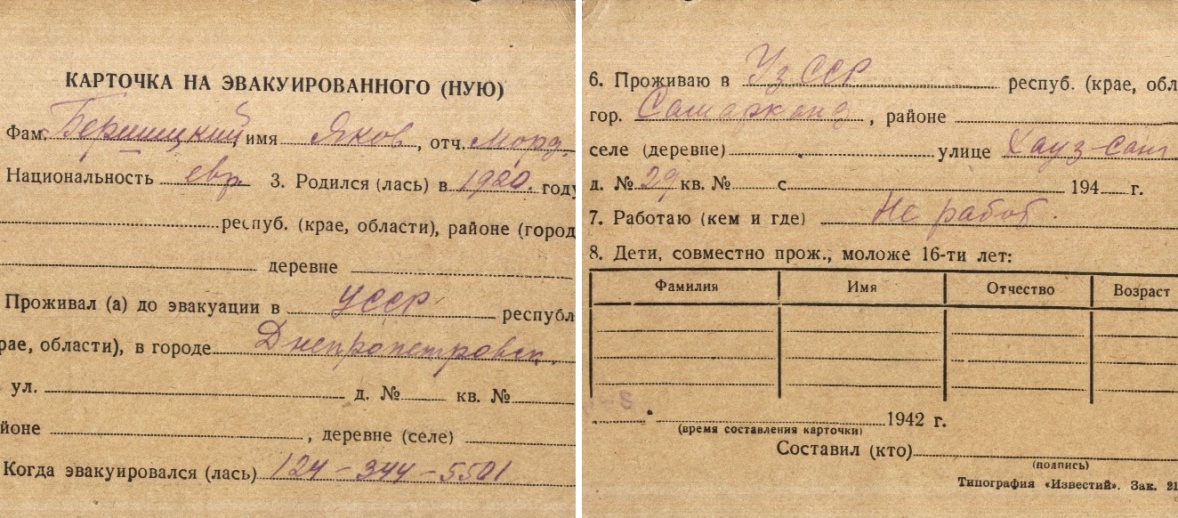Yakov Bershitsky was born in 1920 in Yekaterinoslav (present-day Dnipro), in a family of white-collar workers. After finishing school, Yakov enrolled in the Dnepropetrovsk Medical Institute, and in June 1941, by the time of the outbreak of the Soviet-German War, he was in his fourth year of study. He would go on to specialize in the field of practical military surgery. After being evacuated to Samarkand, Yakov Bershitsky graduated from the Institute with distinction. Although he was given the option of staying on the faculty and engaging in research, he chose to become a frontline fighter. Thus, after completing a two-month training extension course, he was sent to a military hospital in Rostov, which was then the site of heavy combat.
Because of the growing numbers of wounded soldiers, Yakov Bershitsky was appointed head of a sanitary train. These trains were used to transport the wounded to hospitals, and often also to treat them on the battlefield. The train was frequently bombed.
Yakov went on to command one of the medical companies of a rifle regiment. His duties included performing triage of the wounded soldiers rescued after battle: Some had to be treated on the spot, in close proximity to the battle zone; others needed to be urgently evacuated to the rear, to a hospital for serious wounds; still others, who had been lightly injured, would be left near the front line.
Afterward, Yakov Bershitsky was attached to the 2nd Guards Army and sent to Lithuania. Shortly before the end of the war, he was wounded in the leg, yet he refused to be hospitalized and returned to frontline duty, using crutches to move around. He met V-E Day near Königsberg. In the course of the war, Bershitsky was awarded the Orders of the Red Star and the Patriotic War, 1st class, as well as some medals.
After the end of the war, Yakov Bershitsky remained in Germany, and was sent to the Brandenburg Province, where he took part in the dismantling of German factories and equipment, which were to be shipped to the USSR as a form of reparation for war damages. Afterward, he served for two years as chief physician in a tank destroyer brigade, which was quartered in the occupied town of Jüterbog.
In 1948, because of health problems, Yakov Bershitsky moved to Yalta, where he was put in charge of the medical treatment projects of the Soviet Health Ministry administration. In 1962, he transferred to the Ivan Sechenov Research Institute, and went on to work there for almost fifty years. Yakov Bershitsky was recognized as a distinguished physician of Ukraine.







